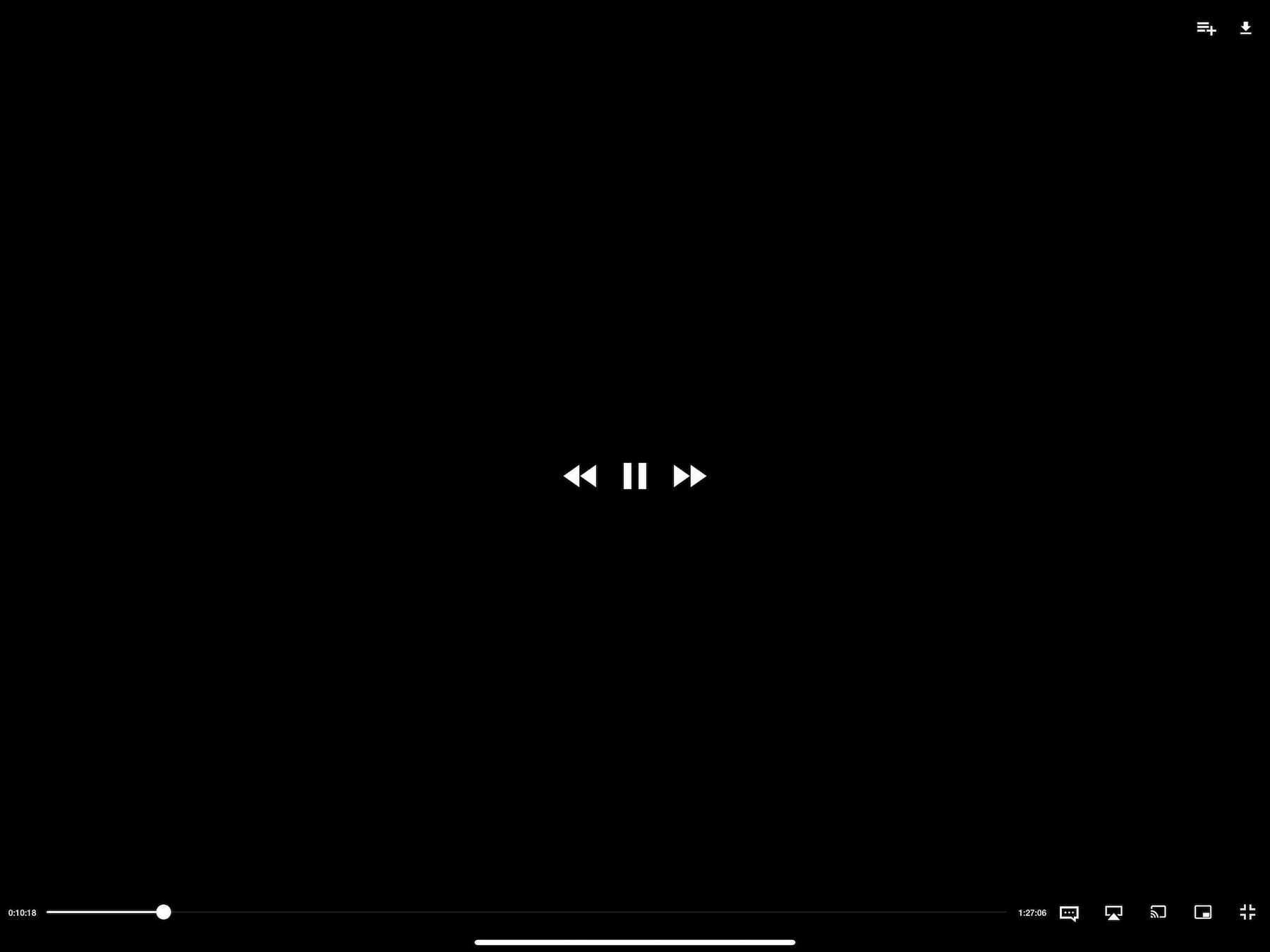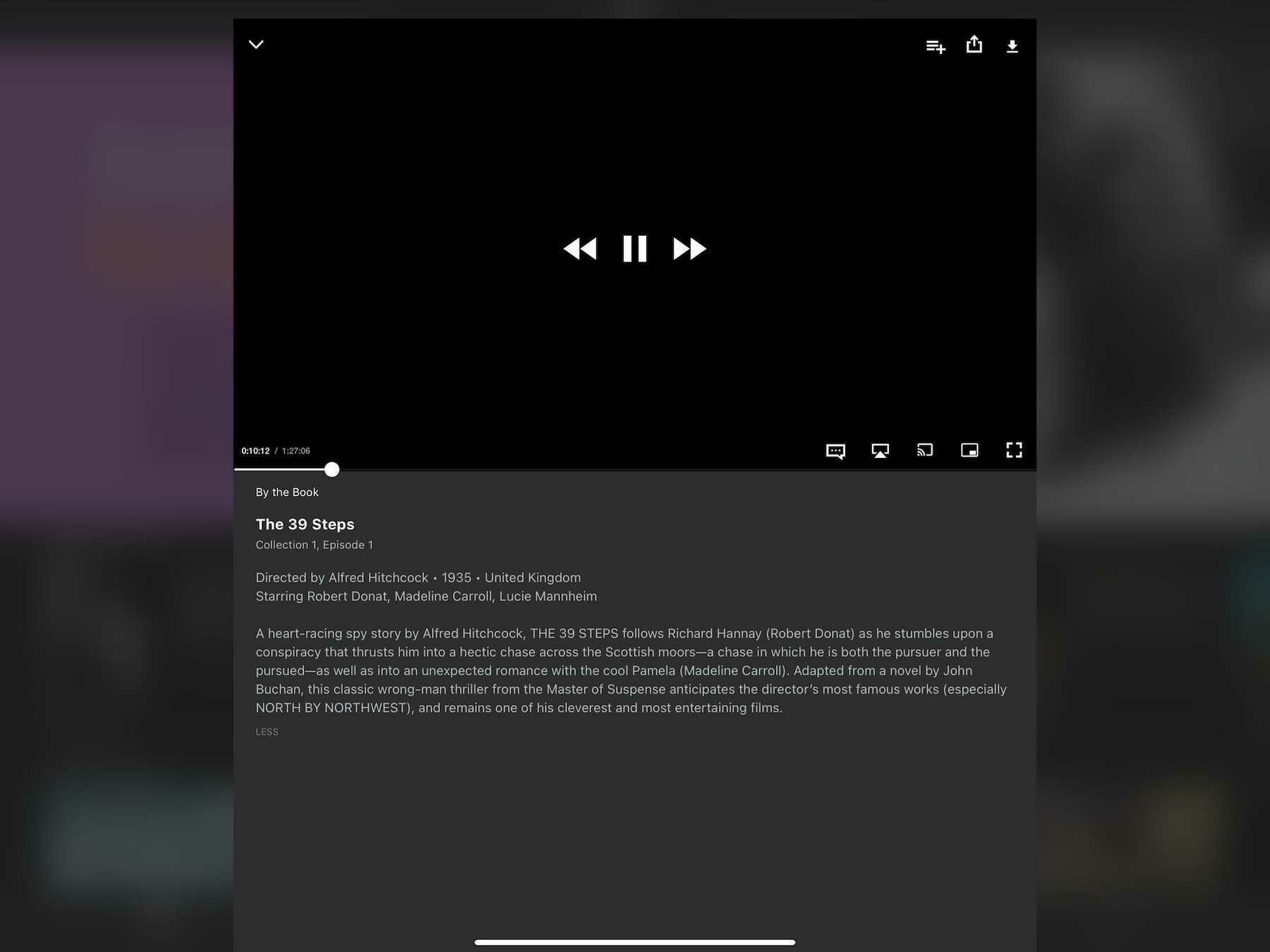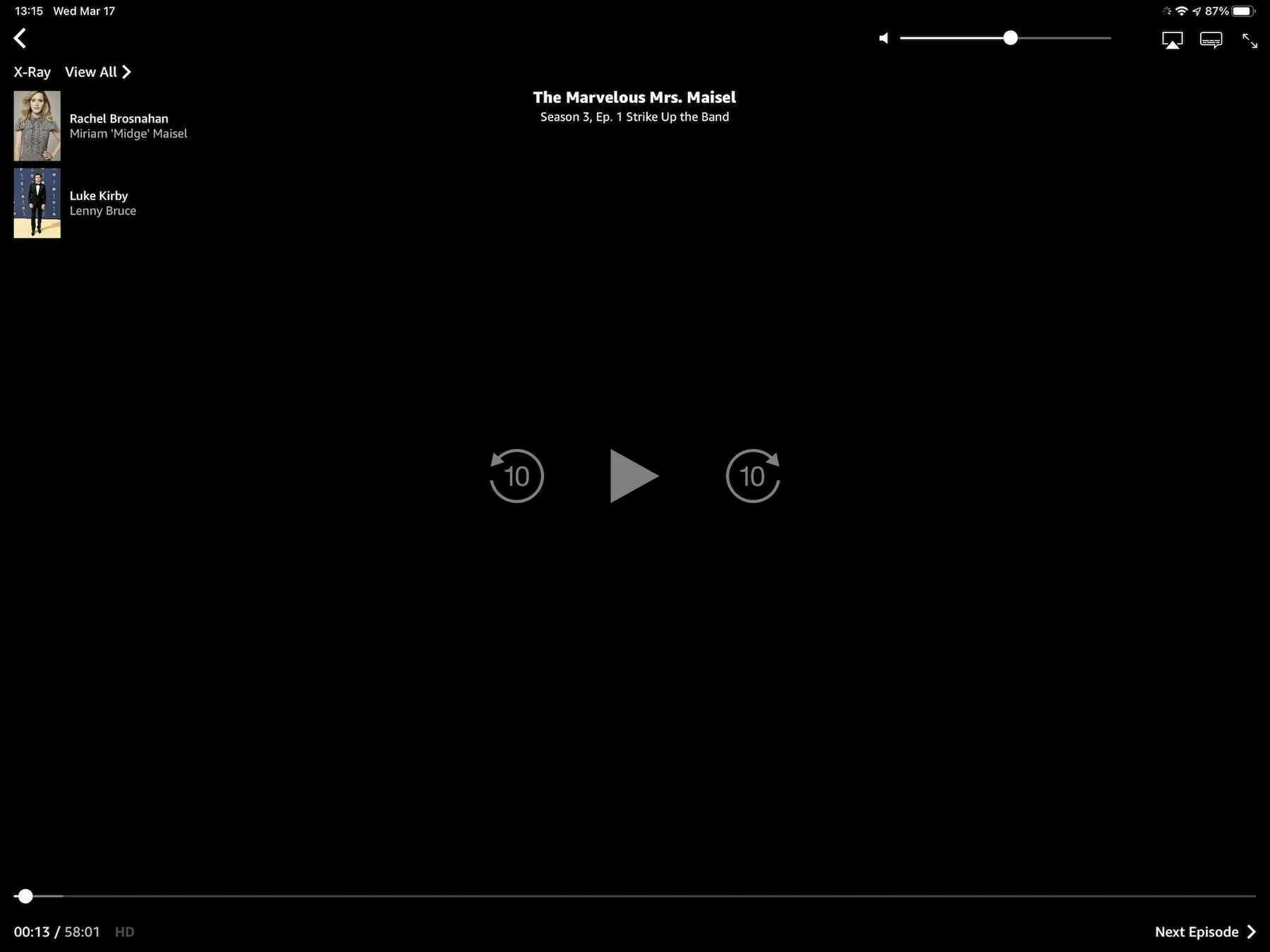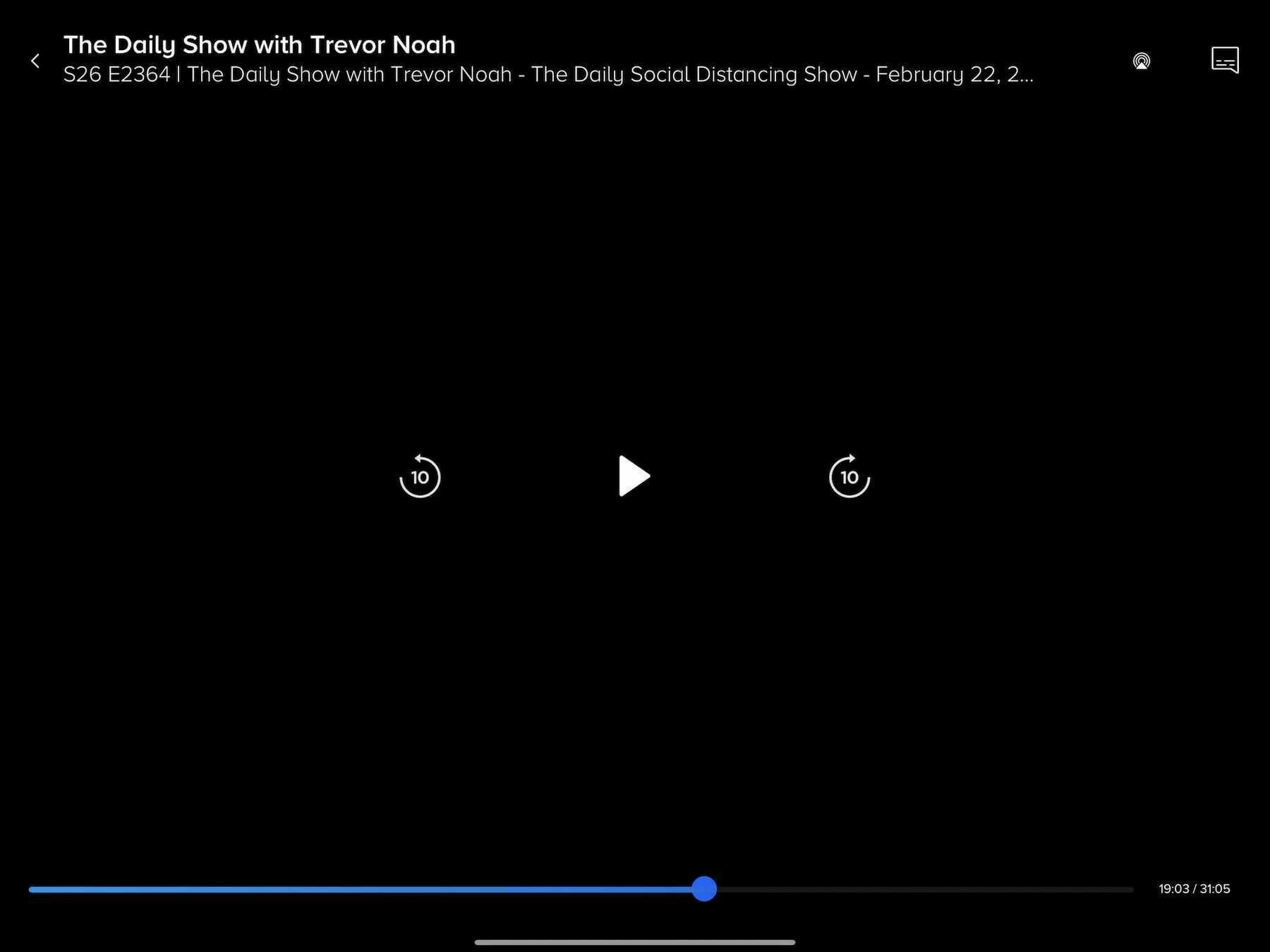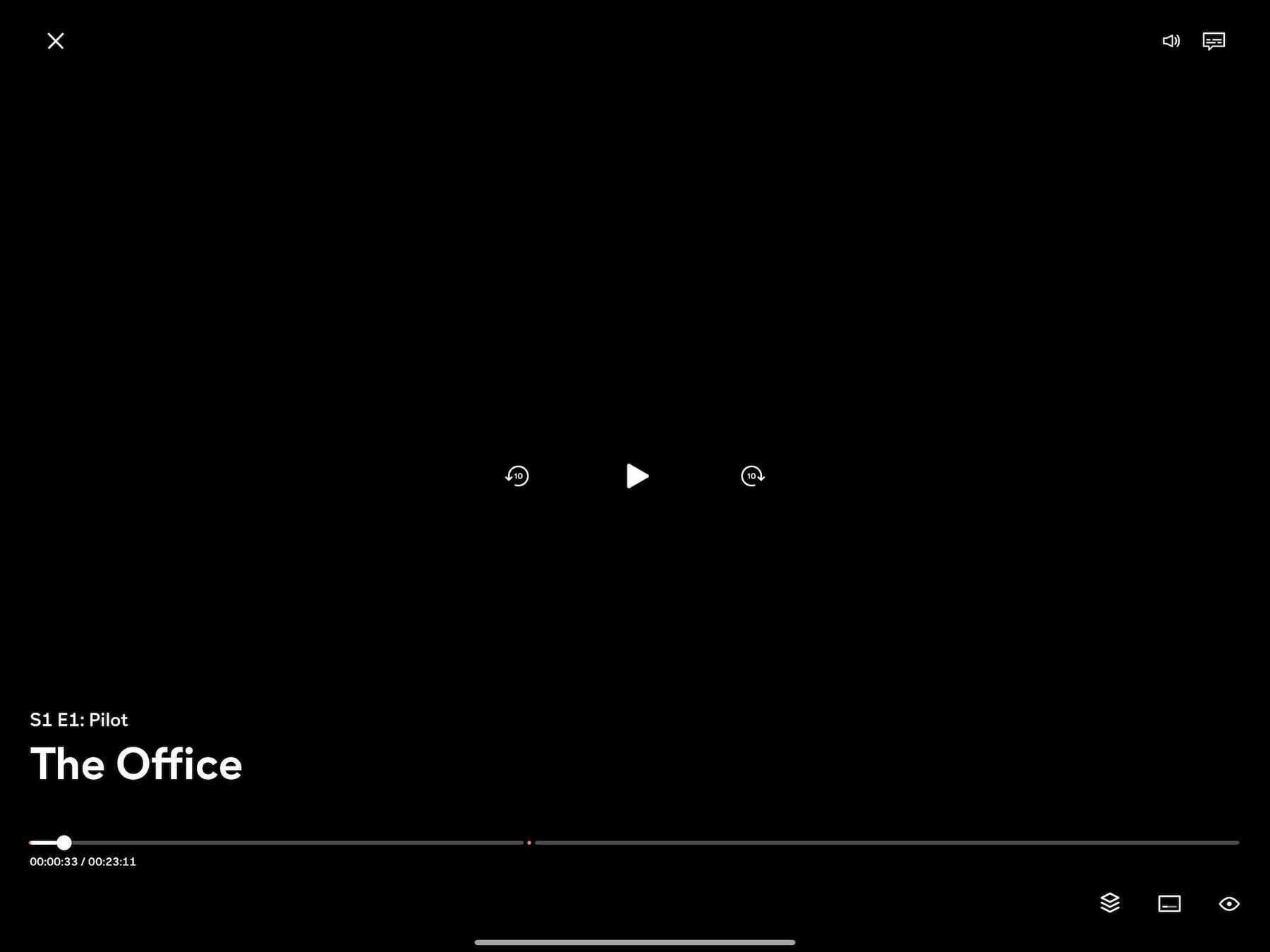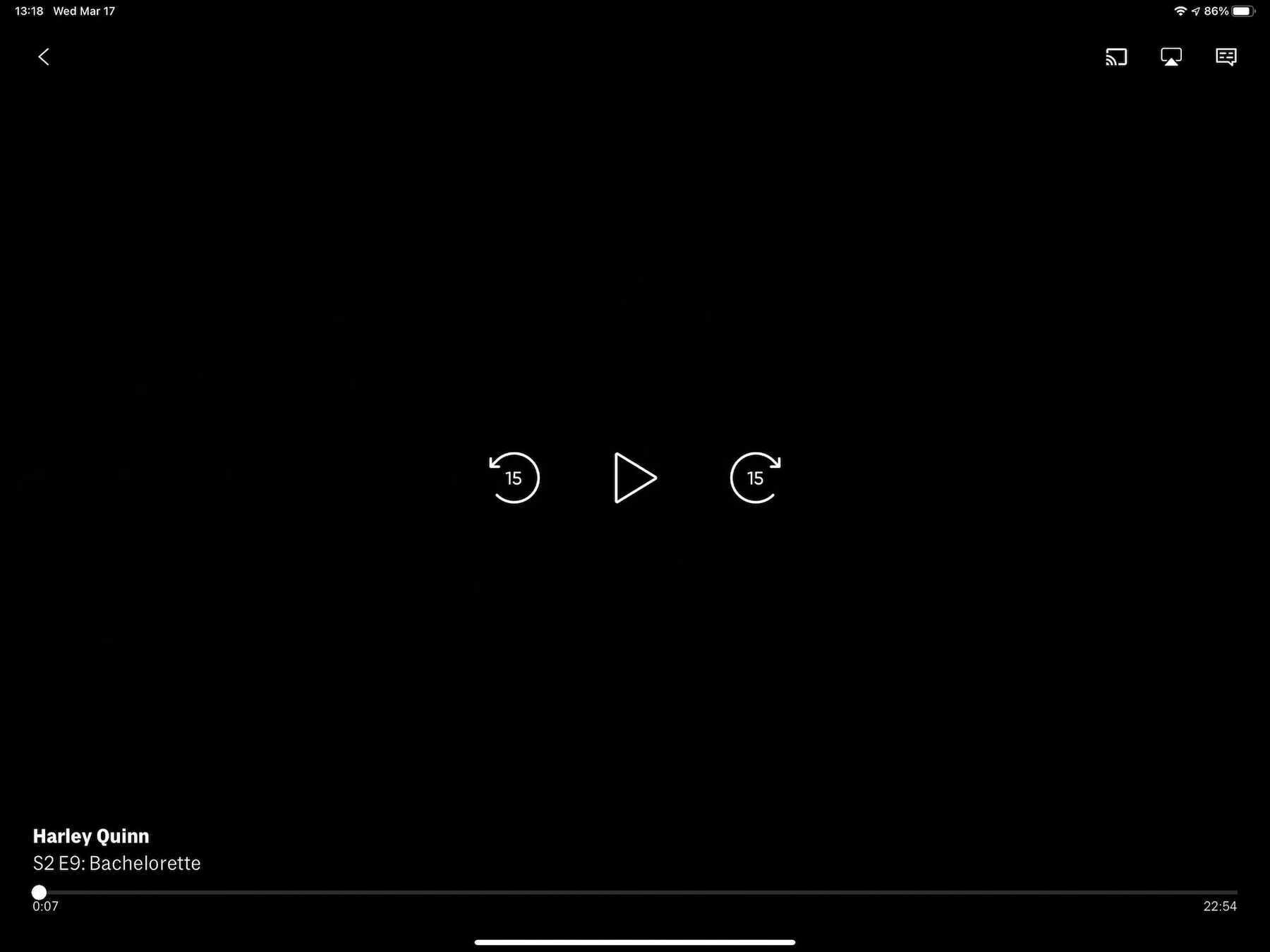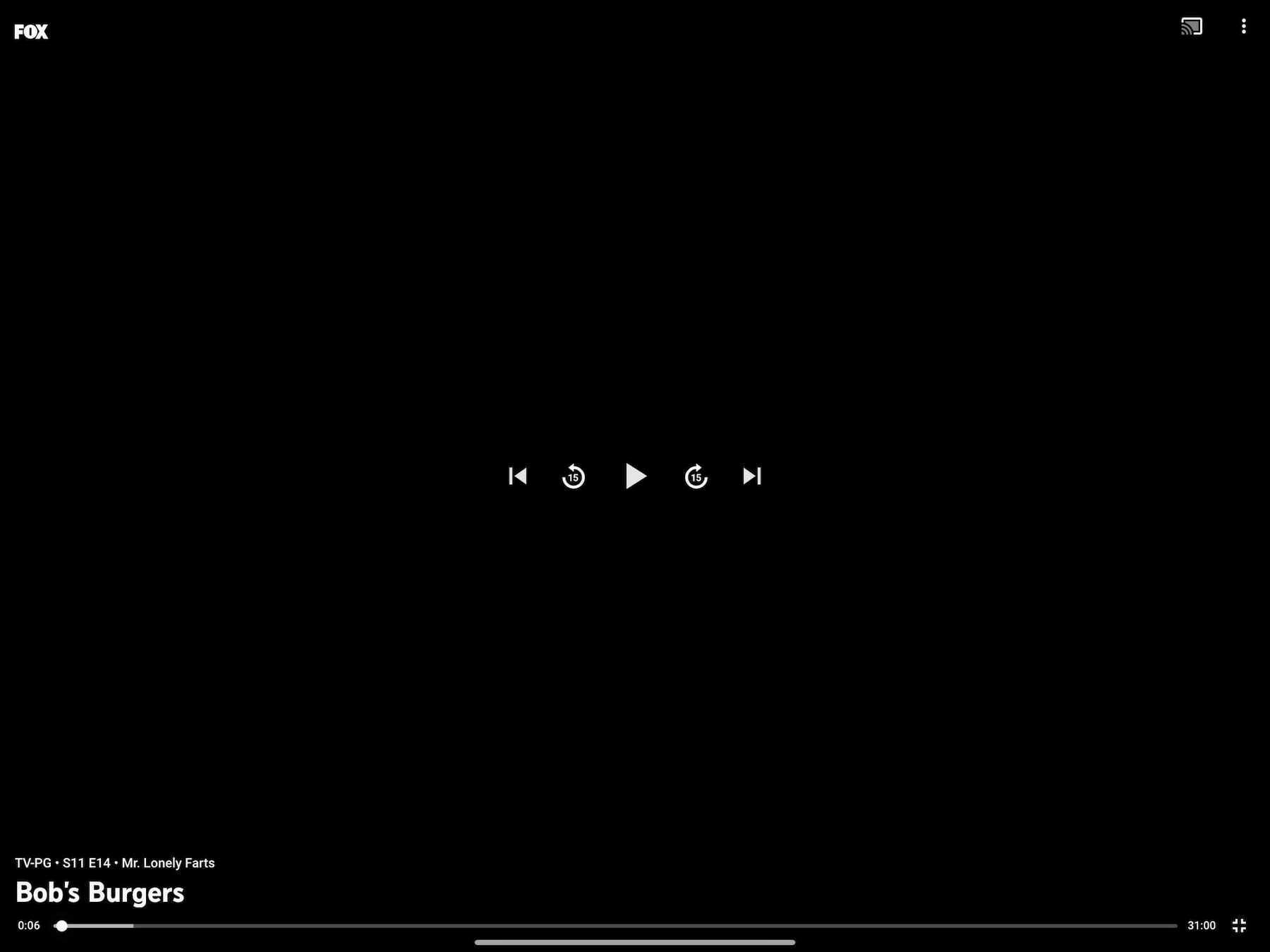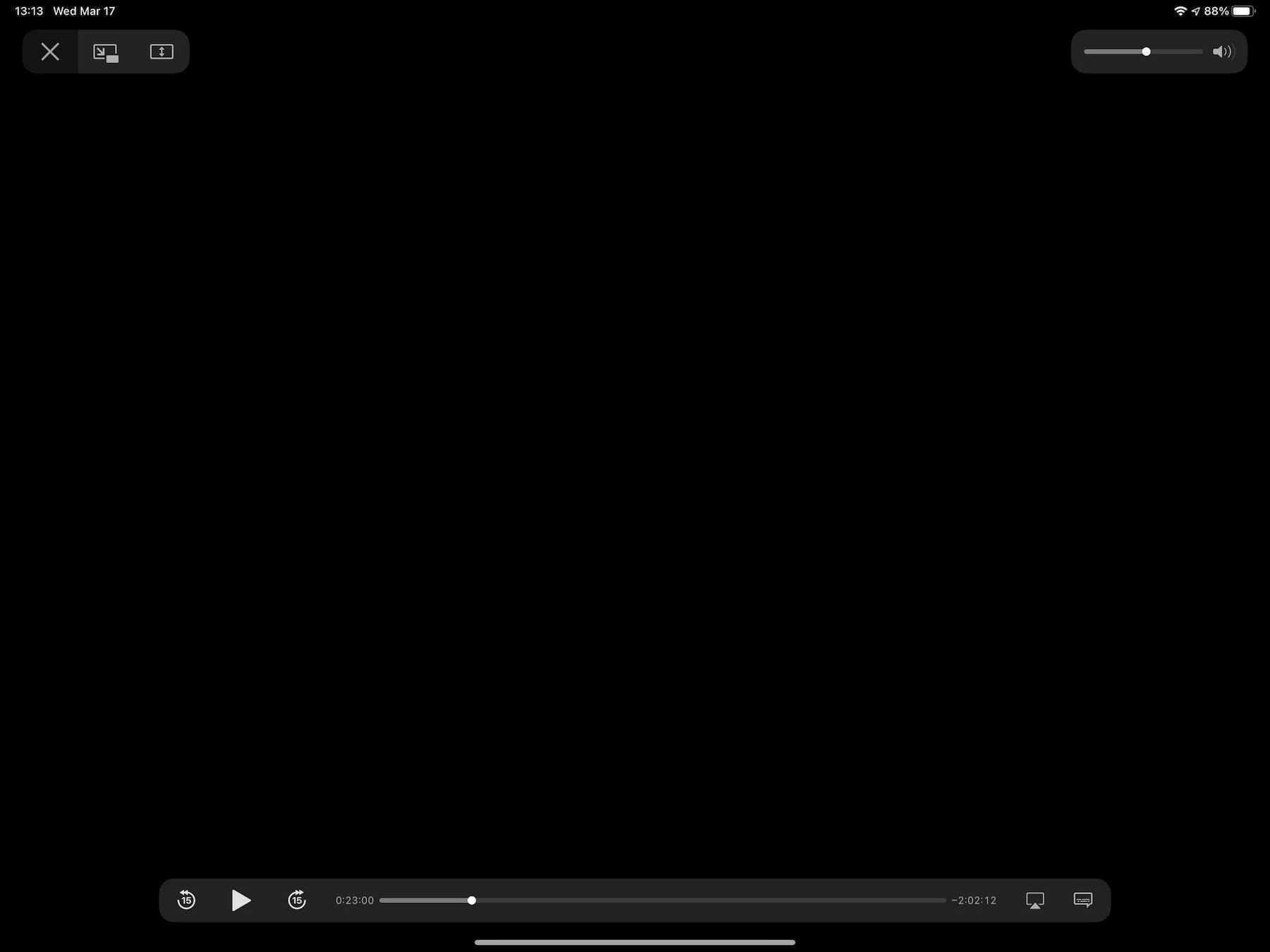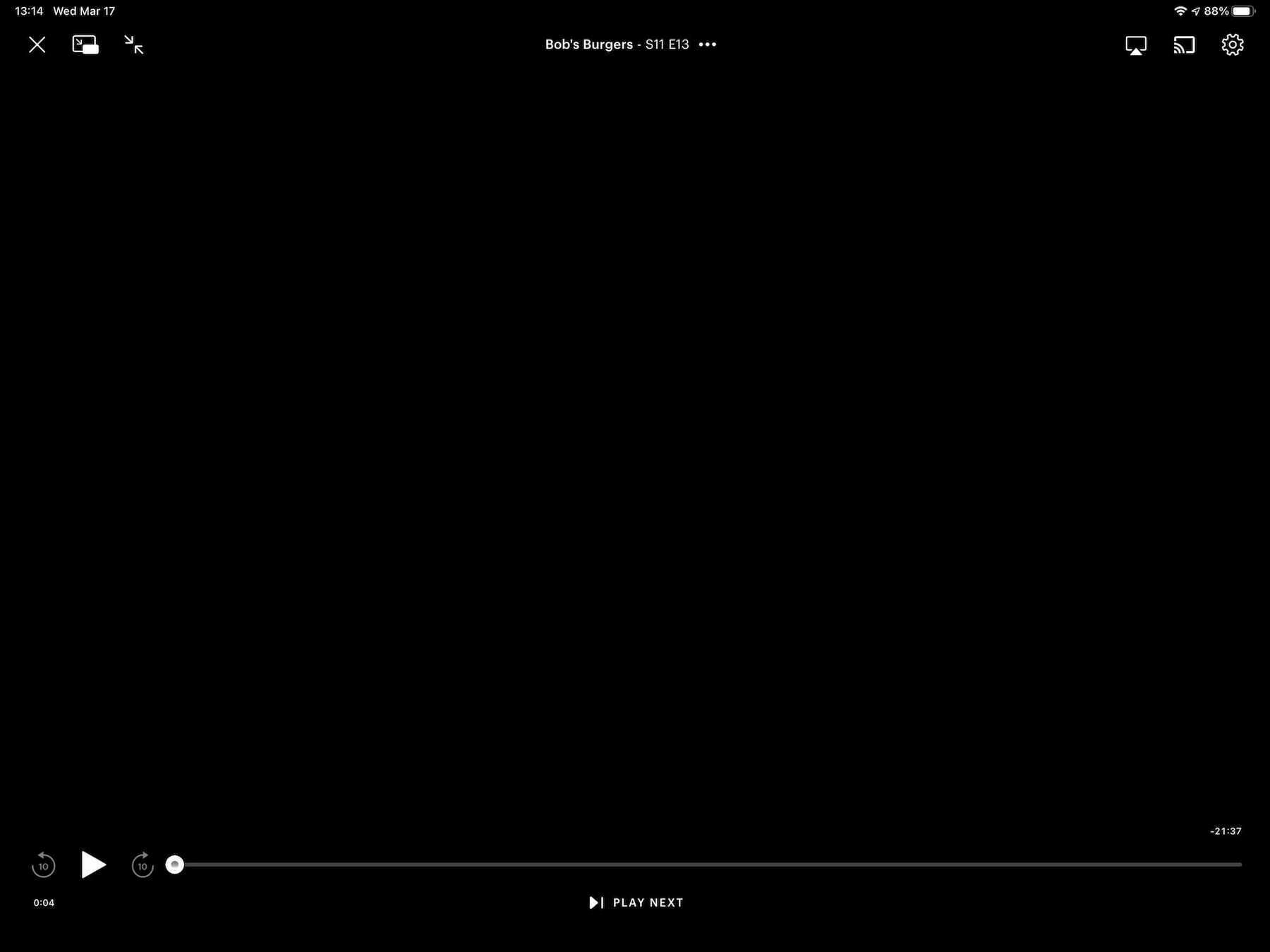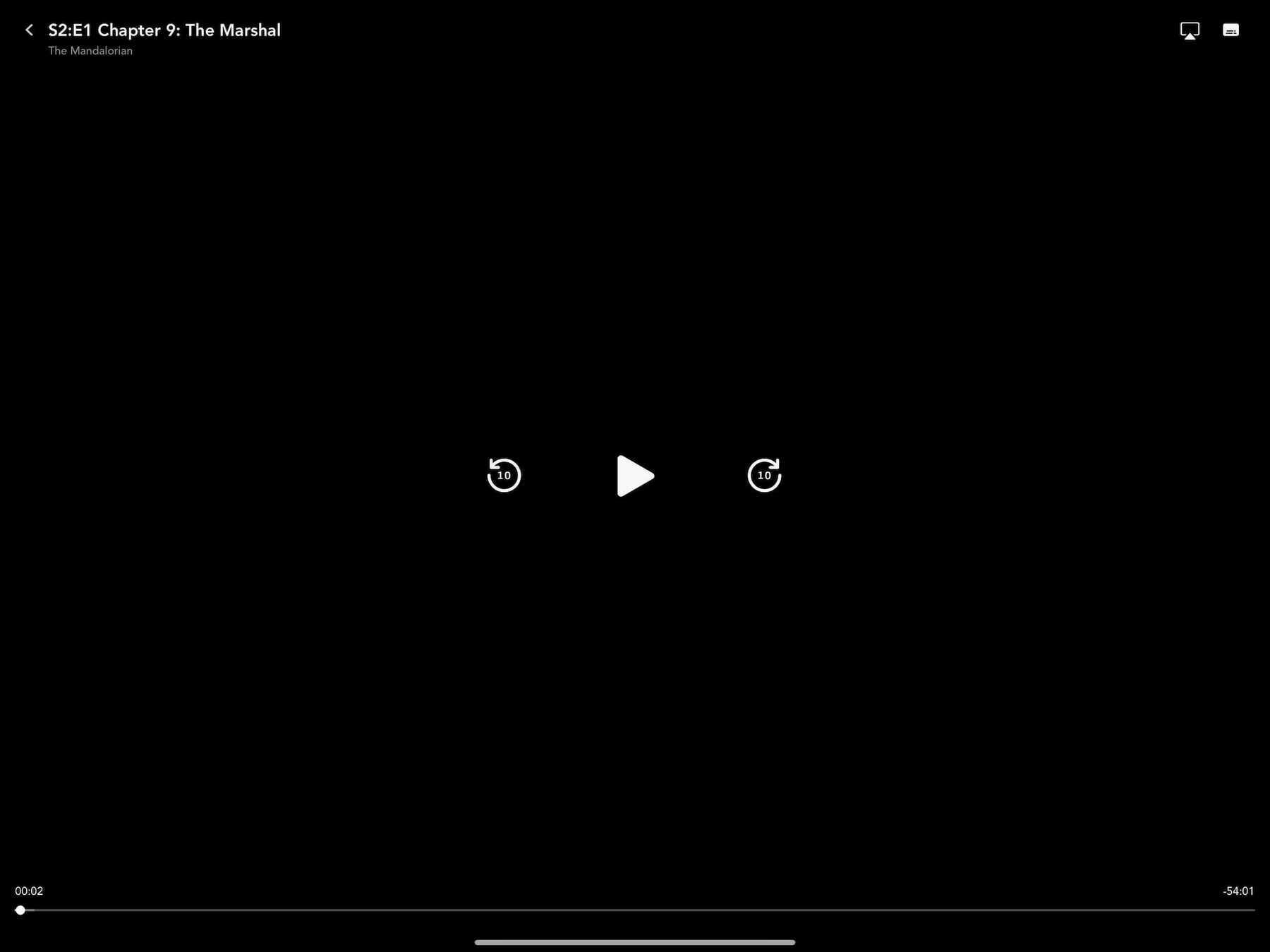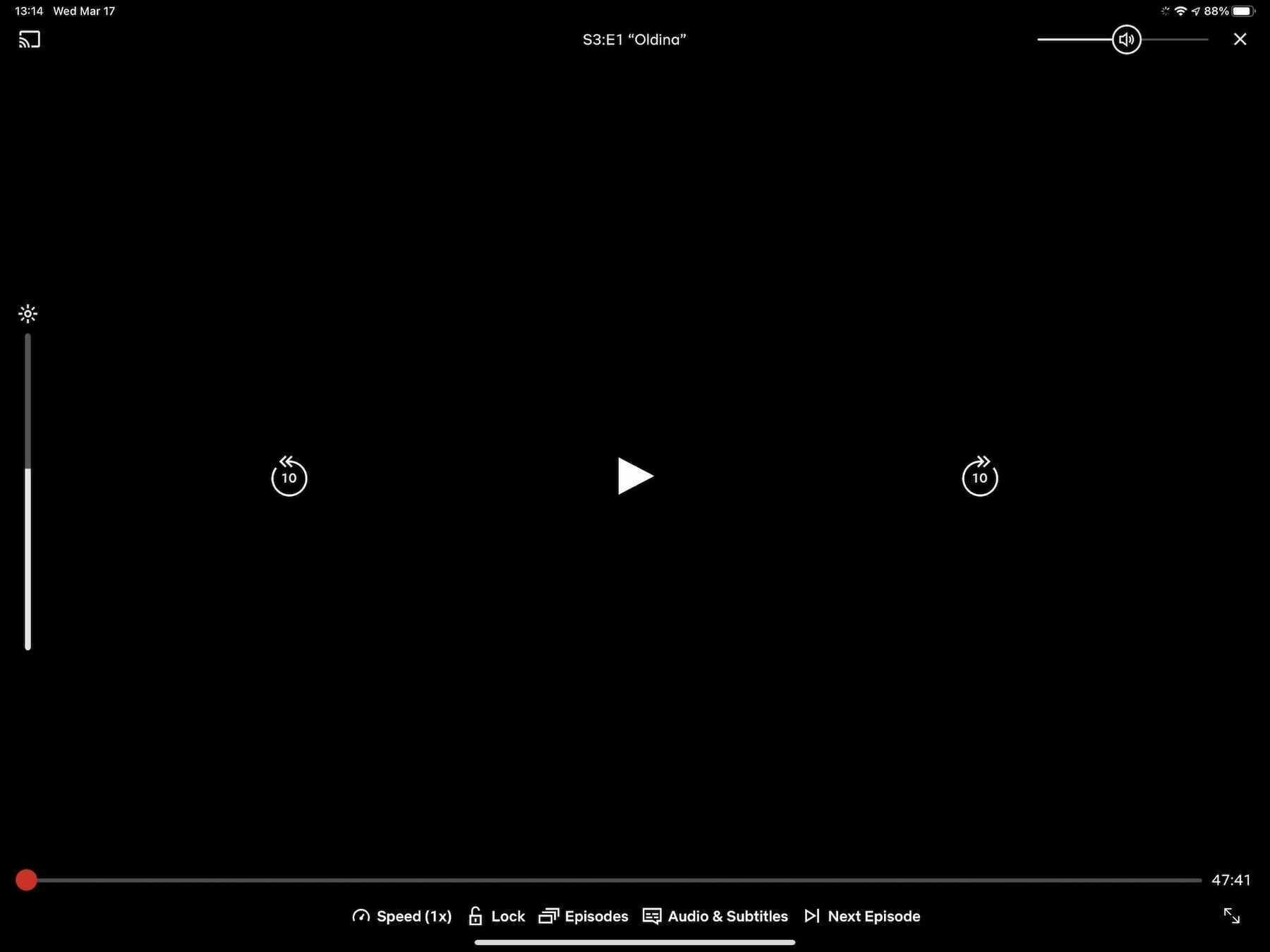- Jog wheel seeking
- Picture-in-picture
- HDR and frame rate matching
- Using Siri to toggle audio and subtitles
-
Something I just learned while trying to find an image of the new Max logo. Searching for “max logo” or “new max logo” returns predictably unhelpful results. Max is such a common word. Good luck to anyone trying to find more information about Max in the future through an internet search. You’re going to get a lot of nonsense. ↩︎
- Amsterdam
- An American Pickle
- Batgirl (and what a debacle this one has been)
- Chad (canceled mere hours before the premiere of its second season)
- Charm City Kings
- Close Enough
- Final Space
- Full Frontal with Samantha Bee
- Gentleman Jack
- Here and Now
- Joe Pera Talks With You
- Locked Down
- Moonshot
- Mrs. Fletcher
- Raised By Wolves
- Scoob!: Holiday Haunt (another project canceled just as it was wrapping up)
- Snowpiercer
- Superintelligence
- The Time Traveler’s Wife
- Vinyl
- The Witches
-
My greatest concern now is that the wonderful Harley Quinn will be among the next to go. ↩︎
-
I’d be remiss if I didn’t also mention See in the same breath. Stuff like Game of Thrones and The Witcher wish they could be as consistently unique and good. ↩︎
-
Much credit is given to the amazing Harris Savides for all of his brilliant cinematography work in Zodiac and elsewhere. He was gone way too soon. ↩︎
-
And let’s face it—much longer than a year and a half when all will be “said and done.” ↩︎
-
I’m going to put aside the baffling issue of a telecommunications company deciding to purchase a visual media company for now. Nonetheless, it’s a strange pairing. Should the quality of the content available on HBO Max begin to degrade, surely this business arrangement will be the culprit. ↩︎
-
That is to say, money. ↩︎
Disney+, Hulu Merged App to Launch Next Month for Bundle Subscribers, Bob Iger Says ↗
A beta version of the Disney+/Hulu app will launch in December for subscribers of the two-service bundle […] ahead of the official launch in spring 2024 (around late March).
I’ve been thinking this would happen for a while. Wouldn’t it be so much easier for Disney to only have to run a single service? Who knows how this one will shake out when it goes live, but it could make for an interesting experience. Maybe I can stop paying for Hulu then?
Then again, the whole Max debacle was a letdown, so maybe this kind of content consolidation is always a bad idea. We’ll see.
Also, does this mean that Disney+ will get all of Hulu’s content, i.e., next-day tv episode premieres, the FX shows, and the decidedly more adult movies and shows? Will it also eventually get its live tv service?
The latter feels doubtful and the former seems necessary (but still kind of weird at this point).
Disney to Buy Full Control of Hulu in Deal With Comcast ↗
By Georg Szalai and Alex Weprin at The Hollywood Reporter:
Disney has agreed to take full control of Hulu in a deal with Comcast, which has owned a third of the streamer ever since Disney’s acquisition of the 21st Century Fox entertainment assets.
With this deal all but assured, I wonder what this means for Hulu’s future? Obviously, it could go one of two ways: everything gets folded into one service, likely Disney+, or they continue on as separate services.
The part of me that likes efficiency wants one app, but that would surely turn Disney+ into a overloaded behemoth.
Netflix Reportedly Plans to Hike Prices for No-Ads Plans After Actors Strike Is Settled ↗
Netflix is gearing up to raise the prices of streaming plans without advertising “a few months” after the SAG-AFTRA actors strike is resolved, according to a new report.
The streaming service is “discussing” raising prices in “several markets globally,” and likely will first increase fees in the U.S. and Canada, according to a Wall Street Journal report, citing anonymous sources. The Journal did not have info on what Netflix’s new prices will be or when they might go into effect.
THE PRICE HIKES WILL CONTINUE UNTIL PROFITS IMPROVE!
While this news isn’t definite, it also wouldn’t surprise me one bit if it happened. I’m sure somebody in an executive suite questioned why in the world they should have to suffer the consequences of temporarily lost revenue when they could just pass it on down to their consumers. After all, it was the media companies that were the true victims of the recent strikes, right?
Right? 🙄
Every day it seems that enshittification should become an enshrined law of the universe.
Streaming TV costs now higher than cable, as ‘crash’ finally hits ↗
From Ben Lovejoy at 9to5Mac:
As little as a year ago, a popular set of streaming services added up to a total cost of $73 per month – compared to $83 for an equivalent cable package. But the latest round of streaming price increases has pushed that cost to $87, says a Financial Times analysis, making it more expensive than cable.
Good job, dummies. You became the very thing you swore to destroy!
Also, from Karl Bode at Techdirt in a related article:
If you hadn’t noticed, it’s not just good enough for a publicly traded company to provide an excellent, affordable product that people like. Wall Street demands improved quarterly returns at any cost, which, sooner or later, causes any successful company to begin cannibalizing itself to feed the “growth for growth’s sake” gods. Mergers, price hikes, offshored labor, whatever it takes.
While high level executives and some shareholders benefit from this enshittification, there’s just an endless list of casualties from this process, whether it’s product value, quality, customer satisfaction, customer support, employee pay, jobs, or even the long-term health of the company itself.
Capitalism was a mistake.
Max just debuted and, yep, it’s just as I believed it would be.
With everything that’s been happening at Warner Bros. Discovery, including that horrid CNN town hall event, I’m looking at investing far more time and hard drive space into Plex than ever.
UPDATE: After several hours of considering this app, I’ve committed to leaving it behind. Gone are the halcyon HBO days; Max is the final nail in that sad coffin.
Max, in its current form, appears to be just a reskinned HBO Max app—new colors, the same big header images, and a sidebar navigation (but with the addition of an inexplicable top menu too). It seems like they could have kept the old app and just changed the name. Why this needed a completely separate app is beyond me. Let’s just call it corporate stupidity.
That’s where the similarities stop. The most egregious issue is the return of the custom video player that no one was asking for. Doing this means Max has dropped all support for the standard tvOS interface and features. “Regression” is the only word for this. This means Max doesn’t currently offer:
This is breaking long-held and valued conventions, all for the benefit of tracking every single second of watching time and every single choice made within the app. Make no mistake, these changes have been done so that WBD can architect profiles of its users and, likely, sell that information to advertisers. In a less nefarious way, it’ll also likely be used to inform future content spending and acquisitions.
This is a 1.0 release (even though it didn’t need to be), so I’m interested to see how it’ll evolve; HBO Max wasn’t particularly great when it was first released either. However, if they’re not going to learn from past mistakes, then I don’t have to give them any more attention and money.
We’re all pawns in the war between streaming giants. The best way to stay clean is to stay out of the skirmish.
Hulu and Disney+ Content to Be Combined In One App, Services to Stay Separate ↗
By Caitlin Huston at The Hollywood Reporter:
Disney will be combining Hulu content with Disney+ content into one app, CEO Bob Iger announced Wednesday.
The company will begin to roll out the new app by the end of the calendar year.
This news has been written on the wall since Disney+ debuted in 2019. Disney owns two-thirds of Hulu, so why wouldn’t they consolidate into a single app? Less overhead, no split focus, and potential subscriber boosting for their namesake app sound like good reasons to do something.
Whether this means I’ll be able to drop my Hulu subscription in the future remains to be seen. There’s also still the question of Hulu’s live tv offering up in the air. I wouldn’t expect to see that on Disney+. What I would expect is for Hulu to disappear entirely sometime in the future.
In related news from Jill Goldsmith at Deadline: Disney Pulling Some Content Off Streaming In Strategic Rethink.
Disney will be yanking content from streaming as it rethinks its costs and strategy […]
Seems they’re following in the footsteps of Warner Bros. Discovery’s decision to remove loads of content from HBO Max in the name of cost-cutting. At one point, I believed that the originals produced by the various streaming companies were destined to live on their respective services forever. Why would they remove their own content? Surely, it couldn’t cost them much to keep it up; licensing fees would be nonexistent. I thought it would be nothing but upside.
That evergreen world doesn’t exist anymore. These billion-dollar media giants are just so strapped for cash that the mere suggestion of continuing to pay for their less-than-successful content is laughable. No better than a slap in the face! A company like Disney has to regularly cull this content from their service or they could face extinction in… [checks notes] Oh, that’s right, Disney will never die. They’ll never face any meaningful hardship whatsoever no matter what their subscriber numbers are or how many infantile governors cross their paths. They could lose every one of their streaming subscribers tomorrow and still have billions in the bank.
I wouldn’t explicitly condone finding copies of those excised movies and tv shows that have conveniently “fallen off the back of a truck,” but I wouldn’t discourage it either. These days, obtaining those copies and storing them on drives you own may be the only way to ensure you always have access to the stuff you want to watch.
Nothing wrong with wresting some control back from the mercurial whims of wickedly wealthy companies who always complain about not having enough money.
Hollywood writers to strike as streaming shift upends TV business ↗
By Lisa Richwine and Dawn Chmielewski at Reuters:
Thousands of film and television writers will go on strike starting Tuesday, throwing Hollywood into turmoil as the entertainment business grapples with seismic changes triggered by the global streaming TV boom.
The Writers Guild of America (WGA) called its first work stoppage in 15 years after failing to reach an agreement for higher pay from studios such as Walt Disney Co (DIS.N) and Netflix Inc (NFLX.O). The last strike lasted 100 days and cost the California economy more than $2 billion.
“The companies' behavior has created a gig economy inside a union workforce, and their immovable stance in this negotiation has betrayed a commitment to further devaluing the profession of writing,” the WGA said in a statement on its website.
It always saddens me to see just how unwilling those with money and power are to ever give an inch if it involves the betterment of those who they view to be below them. What would the entertainment industry be without the talented writers who craft its stories?
I wish all of the writers the very best of luck and a speedy and favorable resolution to this strike.
HBO Max Renamed as Max ↗
From J. Clara Chan:
Warner Bros. Discovery on Wednesday unveiled Max, its refreshed streaming service combining programming from both the original HBO Max streaming service and Discovery+.
Good job, Zaslav, et al. You took the prestige of and brand affection for HBO and turned it into a muck of “Max.” A small part of me hoped that the Warner Bros. Discovery CEO would course-correct away from this graceless endeavor. At the very least, they could have come up with a better name. Even better, they could have kept the HBO Max and Discovery+ apps separate instead of the weird tack of creating this new combination service and keeping Discovery+ around and unchanged.
But grace doesn’t appear to be in their wheelhouse. Like Zapp Brannigan piloting an orbiting restaurant, Zaslav is full steam ahead on seeing what the heck is going to stick to the wall this time.
By removing HBO from Max’s branding, WBD is also hoping to appeal to a wider audience that may have previously turned away from the streaming service due to HBO’s high-brow reputation and higher price point. [WBD’s president, JB] Perrette said removing HBO from the branding was a part of “preserving and protecting the most iconic trailblazing brand in entertainment.”
And yet, they’re still using the style of the old HBO logo in the new Max logo!1 That filled-in “a” in “Max” bears a striking resemblance to the familiar filled-in “o” in “HBO.” Despite what WBD may say, HBO is still a brand with a large and important audience. This amalgamation doesn’t seem like protection. It feels like a lack of confidence in their new product.
And anyway, I thought the point of Discovery+ sticking around was to appeal to that “wider audience.” What, then, is the point of continuing to offer two separate apps—Discovery+ and (now) Max? I understand why they’re keeping the former around. The HBO catalog probably won’t appeal to those who want an endless supply of reality shows. But surely the inverse is true, as well.
We’ll have one focused streaming service that meets the desires of those who use it and one unfocused mess crammed full of stuff that’s likely to confuse and/or frustrate many. As I wrote last August, it’s going to be unpleasant scrolling past, for instance, a giant banner image of 90 Day Fiancé to get to Succession. That kind of silly experience is nowhere to be found on successful rival services like Disney+.
Way to dilute a strong brand in the name of sticking it to AT&T, guys. I’m sure this new service and pricing 4K resolution content into a more expensive tier won’t lose you loads of previously invested fans.
‘Harley Quinn’ Renewed for Season 4 at HBO Max ↗
If you heard an enormous sigh of relief coming from somewhere in the general vicinity of Southern California today, that would be me when I saw the headline of this article.
I wrote in a footnote in this post that I was concerned that HBO Max, which is currently suffering from some kind of burn-it-all-to-the-ground madness, would kill the hilarious and subversive animated show Harley Quinn. For my money, it’s one of the best Batman-related things ever made. The shake-up happening in the DC area of HBO has been concerning from the start. The thinking there seems to be “screw righting the ship; just sink the damn thing and build a new one!” Had Harley Quinn been canceled it would have been a huge stain on the burgeoning reputation of Warner Bros. Discovery.
And this is all in the name of juicing up their stock prices. Since the chaos started, new CEO David Zaslav has been puffing out his chest and shouting, “Look how good at business I am!” This behavior has been appalling to see play out in real-time.
Well, fear no more for Harley Quinn (at least until it comes time to decide on renewing for a fifth season):
Harlivy shippers rejoice — everybody’s favorite supervillain couple is coming back to fight another day. “Harley Quinn” has been renewed for Season 4 at HBO Max.
In addition to the renewal, the streamer also announced that Sarah Peters, who has written for the show since Season 1 and serves as a consulting producer, has been promoted to executive producer and will take over duties as showrunner from creators Justin Halpern and Patrick Schumacker.
Good news all around for a show that deserves every accolade it receives. It’ll be a while before anybody knows whether the new ten year plan for DC will pay off, creatively and financially, but at least they’re not ruining every worthwhile property they currently have. Keep your fingers crossed that I haven’t spoken too soon.
I was surprised in the best way to read that there’s also a spinoff show in the works, and it looks delightful:
In addition to the main show, the “Harley Quinn” team is currently in development on a spinoff series titled “Noonan’s,” which follows Poison Ivy’s ex Kite Man (Matt Oberg) as he acquires the titular dive bar frequented by various Gotham City villains. Halpern and Schumacker told Variety that the series will also feature the voice of Cathy Ang, who guested in Season 3 of “Harley Quinn,” as Kite Man’s new girlfriend Golden Glider. The series also plans to feature the voice of James Adomian as recurring villain Bane.
Sold. I’m there on day one.
HBO Max, Discovery+ to Merge Into Single Streaming Platform Starting in Summer 2023 ↗
Looks like my fears about HBO Max becoming more like Discovery+ were completely warranted. Since the merger was approved earlier this year, it was always going to end up this way. But it’s one thing to talk about it and another thing to see it happening.
Further evidence from Variety that things are going to get weird: ‘Fixer Upper’ and Other Magnolia Network Shows Coming to HBO Max in September. There’s a fair chance that we’ll soon have to scroll on past enormous banner images of such illustrious shows as 90 Day Fiancé, Alaskan Killer Bigfoot, I Love a Mama’s Boy, World’s Most Evil Killers, and My Five Wives to get to The Sopranos and Game of Thrones.
I enjoy stuff like Diners, Drive-Ins, and Dives as much as the next person, but I don’t think it should share space with The Wire. Conversely, I’d bet that people who love what’s currently on offer at Discovery+ don’t want to see the sort of stuff that’s on HBO Max mixed together.
More concerning is the recent spate of original programming that’s recently been canceled or removed from HBO Max. These include:
And they’ve also announced that kids’ content will be cut, which is a damn shame. For anyone of a certain age, i.e., my age, the WB cartoon shows from the ‘90s were revolutionary.
I’m sure I’m missing some, but that’s already a hefty list. With the way things have been going lately, I’m sure it’ll grow longer.1
A little over a year ago, I said that AT&T (the former owner of Warner Bros.) CEO, John Stankey, was one of the worst things to happen to the studio and HBO. It turns out that I was too early in that assessment: Warner Bros. Discovery CEO David Zaslav is hard at work destroying what made HBO the powerhouse source of original storytelling it used to be. If former HBO CEO Richard Plepler was dead, he’d be rolling in his grave. Right now, he’s probably just shaking his head in frustration.
I’m hoping that my concerns will end up being unfounded. Perhaps some good can come out of this messiness. Deadline did also report that Zaslav said about HBO and HBO Max:
We’re going to spend dramatically more this year and next year than we spent last year [and] the year before.
Who knows what that’ll actually mean in the long term. I hope it won’t include abandoning all scripted television, as Screen Rant reports. However, given the figurative bloodbath that’s been occurring, I’m not going to hold my breath.
If you’re looking for a new place to enjoy excellent storytelling, I continue to heartily recommend just about everything on Apple TV+. Give Ted Lasso, For All Mankind, Severance, and See a try. They’re clearly building a brand focused on longevity and, most importantly, quality. It reminds me of what the old HBO used to be.
‘For All Mankind’ Renewed for Season 4 at Apple ↗
“For All Mankind” has been renewed for Season 4 at Apple.
The announcement was made Friday as part of the show’s panel at San Diego Comic-Con. Production on the new season is scheduled to begin in August.
Apple has spent a lot of time and money pushing shows like The Morning Show, Severance, and Ted Lasso on their streaming service. For good reason, no doubt—they’re spectacular (especially the last two). However, For All Mankind, for my money, is their sleeper hit.1
It may not ever develop the same sort of fervent fanbase or be an “of the moment” experience that Ted Lasso has enjoyed. For All Mankind is not a feel-good, inspirational comedy. It’s dramatic sci-fi, which may turn people away. But what it lacks in laughs, it equals in quality and storytelling.
I’m looking forward to traveling the cosmos with this show for another season.
Netflix Admits Some Shows Won’t Make It To Ad Tier, In Talks With Studios Over Licensing Deals ↗
By Peter White for Deadline:
Netflix plans to launch its advertising tier in early 2023, but not all of the shows that are currently streaming on the service will make the cut.
Obviously, they’ll still be offering all of their original content, as confirmed by the article, but this is a peculiar licensing issue. Either these studios don’t want their shows played with ads or there needs to be a new deal struck anytime the status quo changes. I’m betting on the second one. Rarely are things simple when media companies are involved.
Or there’s some mystery third reason. Your guess is as good as mine there; I’m no industry insider.
I’m certain this ad-supported tier will actually be a boon for Netflix—their pricing is exceptionally high and this new tier should be far more affordable. It’ll be great for people who can stand ads playing during their shows and movies.
I’m not one of those people.
Limiting the number of available shows probably isn’t going to make someone interested in this new tier think twice about signing up. It’s not going to convince me to downgrade, though. Fewer content options and unskippable ads? That sounds like a nightmare. No thank you, sir!
On top of all this, Netflix has been losing subscribers (albeit at a slower rate than predicted), so I’ll be curious to see how this new shake-up shakes out.
While streaming the classic rock station, I heard an ad for a separate Apple Music radio show between songs. And here I thought the $30 a month I’m paying (Apple One subscriber here) was going to give me a totally ad-free experience.
We’re all just captive audiences.
UPDATE: Seems like Jason Snell is having the same issue. I’m not going to change things, but maybe his public complaint could move the needle?
Amazon Freevee Orders ‘Bosch: Legacy’ Season 2, Inks Disney Movie Licensing Deal ↗
Amazon Freevee (formerly IMDb TV) announced the pickup of Season 2 of “Bosch: Legacy,” a spin-off of series “Bosch” that ran for seven seasons on Prime Video — ahead of the May 6 premiere of “Bosch: Legacy” on the ecommerce giant’s free, ad-supported streaming service.
All I care about here is Bosch and now we’re all guaranteed at least two seasons of this new spin-off. Everyone involved seems bullish about this show. I’m glad to hear that it won’t be a stinker.
And Amazon Freevee is still a silly name. Maybe a little clever if you squint your eyes and look at it sideways, but silly.
Discovery Closes $43 Billion Acquisition of AT&T’s WarnerMedia ↗
Discovery completed its $43 billion acquisition of WarnerMedia from AT&T on Friday to form new company Warner Bros. Discovery, Variety has confirmed.
WarnerMedia owns HBO, HBO Max, CNN, Warner Bros., DC Films, New Line Cinema, TBS, TNT, TruTV, Cartoon Network/Adult Swim, Turner Sports and Rooster Teeth, among other brands, and is part owner of the CW Network along with Paramount.
Discovery is the parent of Discovery Plus, Discovery Channel, HGTV, Food Network, TLC, Investigation Discovery, Travel Channel, Turbo/Velocity, Animal Planet, Science Channel and OWN (Oprah Winfrey Network).
What’s going to happen now will be, to say the least, mysterious and interesting. Here’s hoping that they can keep everything in their respective lanes. I don’t care to see a bunch of gritty, HBO-style reality shows.
I’m resolving to complete my own version of the Criterion Challenge 2022. I’ve been meaning to watch more Criterion films (and make my subscription to their expensive streaming service worth it).
It should be a fun and hopefully enlightening endeavor.
David Fincher Announces Surprise Netflix Documentary Film Series ‘Voir’ ↗
From House of Cards to Mindhunter to Mank and now a new documentary film series about cinema, Fincher is once again proving himself to be one of the most progressive directors working today. I’m not in the least bit surprised. This man, one of my favorites, has always been at the forefront of filmmaking. His brilliant 2007 film, Zodiac, was one of the first feature films to be captured almost exclusively with a digital video camera, the Thomson Viper FilmStream Camera.1 This was at least a good six years before films shot with digital cameras started to outnumber those shot on film.2
The man likes trying new things.
Contrast this behavior with that of other directors, like Steven Spielberg. In an interview with ITV News, he expressed his distaste for movies made for streaming services being given the same reverence and accolades that movies made first for theatrical screening can receive. He said,
Once you commit to a television format, you’re a TV movie. You certainly, if it’s a good show, deserve an Emmy, but not an Oscar. I don’t believe films that are just given token qualifications in a couple of theaters for less than a week should qualify for the Academy Award nomination.
I’m not necessarily saying this venerated, incredible director is wrong. He’s expressing his own opinions, many of which I share. I love seeing a complex, moving film in a dark cinema. There’s something unique and special about that experience. Furthermore, he’s certainly earned the right to comment on and criticize the way corporations have minimized the spectacle of theatrical premieres. Goodness knows that I’m not a legendary filmmaker and a household name.
I would suggest that he’s also showing a fair amount of famous person privilege. He shouldn’t forget that he came from nothing. He should also recognize that extremely talented filmmakers, whether they be known now or up and coming, may never achieve the sort of clout necessary to have a film released in theaters. Some of the most brilliant films to ever be made will debut and live only on streaming platforms. It would be a shame if those films didn’t receive the recognition they deserve from the Academy just because they don’t fit Spielberg’s idea of what a “real” film should be. The world would be lesser for it.
I don’t think theaters will ever disappear completely, but it’s clear that the filmmaking business and viewers around the world are more interested in streaming their media outside of a theater. Therefore, it’s more exciting for me to watch a director “skate to where the puck is going,” so to speak. Fincher is not someone who has ever shied away from being at the vanguard of new techniques or experiences. Instead of fighting the growth of streaming services—a futile battle—he welcomes them. He’s diving into this new world headfirst. No one will ever be able to accuse him of being stuck in the past. He might still make films that premiere in theaters, but he won’t do that out of stubbornness and inertia.
I’m excited to see Voir when it’s released. It will surely be the product of much attention, talent, and love. That will help further legitimize filmmaking in all its forms, whether it be released in cinemas or on a streaming service.
Paramount+ has the distinct honor of being the worst streaming service that I’ve ever seen or used. Their competitors aren’t even close. UI issues aside, if I can’t count on it to even just play a chosen video, then it deserves nothing but shame.
‘The Suicide Squad’ Bows To A Disappointing $26.5 Million; Still Snags Top Spot At The U.S. Box Office ↗
By Chris Nashawaty:
Five summers ago, the DC supervillain extravaganza Suicide Squad had a massive $133.7 [million] opening weekend at the North American box office. Despite those eye-popping numbers, critics and audiences were left unimpressed by the film. This weekend, the complete opposite happened: critics and audiences loved its big-budget follow-up, The Suicide Squad, but its theatrical receipts were underwhelming, pulling in just $26.5 million in its debut weekend. In the age of COVID, it appears that up is down, black is white, and blockbusters just ain’t what they used to be.
In this case, I feel like “disappointing” is a word that should only be used by someone who hasn’t been paying any attention to the world for the last year and a half.1 I’m hoping that the people who make the decision to green light a film won’t read too deep into this sort of misleading headline.
The writer’s conclusion is correct. Blockbusters indeed “just ain’t what they used to be,” but that doesn’t necessarily mean they’re underperforming. Streaming services don’t often publish clear data about their viewership numbers and COVID has screwed up theatrical revenue. With those two factors in mind, The Suicide Squad, if I had to bet, is by no means a disappointment. To be more accurate, nobody knows yet how to properly gauge a film’s success in a world that values streaming at home over going to the theater.
By the way, I thought The Suicide Squad was amazing and fun. There’s no question in my mind that it’s DC’s best film so far. They should never stop throwing gobs of money at James Gunn. 🎥
Netflix: “I see you watched an entire season of a single anime show. Let me offer you some new suggestions. Have you considered watching every anime ever produced now?”
Me: “…You’re coming on a little strong. I think we need to see other people.”
The WarnerMedia-Discovery merger continues to roll along. Say hello to Warner Bros. Discovery!
…
A less creative and exciting name there could not be, but I guess that’s not the point. I can’t wait for the upcoming app which will surely be named: HBO Discovery Max+.
Speaking of AT&T and its acquisition of Time Warner, and therefore also HBO, the whole deal has always disappointed me.
On the one hand, HBO Max has done well for AT&T. It got 4.1 million new signups in its first month of existence, which is nothing to sneeze at. Even more impressive is that it’s accomplished this while demanding $15 a month, making it one of the most expensive streaming services available. By all accounts, it’s a big success for AT&T. No doubt it was helped along by the COVID pandemic; when we’re all stuck at home, it helps to have excellent and fresh programming to consume.
The decision to premiere feature films that otherwise would have been theater exclusives on the service was another boon for them. Sure, it upset many people involved with both the entertainment and theater industries, but their objections were never going to sway business daddy AT&T. Until HBO Max starts losing money, nothing will deter them from their present course.
On the other hand, HBO as we knew it before the acquisition is gone and will likely never return. The blame for that lies entirely on the shoulders of AT&T’s CEO, John Stankey.1 In an incredibly detailed and well-researched CNBC article, Alex Sherman details the rocky process of this acquisition. The article boils down to this quote from a former HBO executive:
If HBO stood for anything, it was making a product for the customer, not the advertiser. It’s not as though John is unpleasant. He doesn’t throw stuff. He just knows much less about television than he thinks and won’t be debated.
Is Time Warner and HBO’s acquisitions by AT&T good for business, or at least the business of AT&T? Undoubtedly. This opens up a bevy of new revenue opportunities, which will, in turn, make the bottom line of the telecommunication giant look great. However, I don’t believe this will improve the quality of the content that’ll appear on HBO Max in the coming years. HBO was doing just fine without AT&T’s heavy, leading hand before the acquisition. You can expect the familiar HBO quality to get watered down as AT&T spreads the focus to areas that have never mattered to past HBO. In an interview with Jillian Morgan at Realscreen, executive vice-president of original non-fiction and kids programming, Jennifer O’Connell, says:
There is a ton of weight on unscripted… We’re doing dating, we’re doing social experiments, we have competition shows, we have really big competition shows… That is an area that, for example, our colleagues at HBO, they are not necessarily in that space so deeply, so it’s very rich, very fertile ground for us to dig into.
There’s nothing necessarily wrong with unscripted programming. It’s enormously popular for a reason—people flock to those shows in droves. However, it was never HBO’s area of interest. AT&T doesn’t care about that history. It cares about making money, and there’s a lot of money to be made in unscripted, non-HBO style content.
If you’re looking for a future replacement for HBO, the service that’s making the strongest play is Apple TV+. Netflix has become flooded with content that’s aimed at appealing to the broadest number of viewers. A service like Hulu has an advertising-supported pricing tier, meaning their content is ultimately beholden to other entities. Disney+ has shown that they’re interested in telling unique stories, but they’re doing it off the springboard of their massive library of previously made content.
The only service out there that’s charting a unique course is Apple TV+. They’re walking the HBO path of debuting movies and shows that will, over time, grow to be a body of impressive work that’s all their own. They’re going to stumble along the way—even HBO was never perfect—but they’ll catch themselves and improve on their mistakes. They’ve invested too much money already to just ditch all their hard work. I’m looking forward to seeing where they’ll go.
It’s just a damn shame about HBO.
UPDATE: From a 9to5Mac article published on April 13, 2021: Apple TV+ features the highest-rated content of any streaming service, study says. Seems like Apple TV+ is already beginning to deliver on my estimation of it being the new HBO.
I’m continuing to watch Mr. Mercedes. It’s been a fair adaptation, but I’ve also found it to be fairly tame relative to other adaptations of Stephen King’s work.
Also, it’s an “AT&T Original.” AT&T owns HBO. Why isn’t this show on HBO Max right now? 📺
What Are the Most Pleasant Streaming Video Player Interfaces?
I’m reminded of Craig Mod’s excellent essay, Fast Software, the Best Software, when I consider the current state of streaming video player interfaces. In the essay, he says that it’s not innovative features or a flashy UI that makes a piece of software the best. Instead, the mark of good software is in how well it performs, or rather, how fast it feels. Software that takes ages to load, bogs down when dealing with a hefty project, or otherwise feels as if you’re trying to work while submerged in a vat of molasses is not the best. I would add to Craig’s thesis that easy to parse and manipulate software also makes for the best software.
Similarly, the various interfaces through which we control our streaming video each have their own speed and feel. Some are so well-designed that using them feels like the screen in front of you is an extension of your body. Others are so damn awful that using them maybe makes you harbor thoughts of flinging your tablet or phone like a Frisbee through an open window.
It’s not luck that turns any of them into a joyful experience. It’s iteration and thoughtful consideration. The poor ones feel slapdash, and appear to be made by people who never actually use the product on which they’re working.
I haven’t used all of them because there are just so many available to us now, but I’ve used several. They all stand out in their own way: some are great, others just get the job done, and a merciful few are loathsome. This is a subjective ranking from worst to best. All images are taken from the iPad versions of these services.
Criterion Channel
I love The Criterion Collection and their Criterion Channel is a treasure trove of artistry and delight. To be involved with their work in any way would be a dream. Perhaps my job could be improving their player interface because their current offering is a pile of hot garbage.
The major problem with this app is hitting play on a video doesn’t bring it to the fore in glorious full screen. Instead, it starts playing in the description window for the film. Giving yourself the full-screen experience requires additional button presses to get there.
This isn’t unique behavior—YouTube works the same way. However, YouTube doesn’t default to a full-screen player because YouTube is also a social network. It features comments made on videos, additional content to watch, and a description for what you’re watching. Criterion Channel is not a social network. It’s a tightly curated collection of some of the best that cinema has to offer, and there’s nothing but friction involved with it.
Every element feels small and cramped. Good luck hitting pause when the skip buttons are only a few short pixels away from it. Criterion Channel appears to embrace the current “small is hip” trend. There’s nothing wrong with large buttons; they actually make things faster and more enjoyable to use. With these issues, I find myself not wanting to even open the app. It’s a damn shame.
Rating: 2/10
Prime Video
Much like any interface design Amazon tries its hand at, this one just feels clunky and careless. It looks like Amazon’s trying their best, but when stacked up next to something prettier, like Hulu or Discovery+, Prime Video just can’t compete.
What it lacks in pleasantness, Prime Video makes up for in information density. It can surface and display actors who are currently onscreen, trivia about what’s being viewed, and music that’s being played. This is due in large part to IMDb being an Amazon-owned company. For movie and tv lovers, it’s a treat.
When you dig deeper into the interface, and the service as a whole, it becomes clear that something is a little off. The whole thing feels like it’s being held together by duct tape and chewing gum. It’s the little things like icon alignment that shouldn’t be an issue but are. For example, the small icons in the upper-right corner of the player window aren’t vertically aligned and it’s all I can see now:
This sort of thing shouldn’t happen when a corporation as large as Amazon is making the app. Yet, this sort of laziness appears to be okay with them.
Rating: 4/10
Paramount+
It’s a damn shame that the massive shortcomings of this service overshadows the niceness of this interface. Seriously, what the heck is going on with Paramount+? Aside from a logo change, it’s currently the exact same thing as its predecessor, CBS All Access, and that wasn’t a great service either.
Here’s what the player looks like:
It’s very nice. Here’s a fine example of an economy of information. We know what’s being played, we can play/pause and skip around with ease, and there’s a couple of extras in the top right. This may be the most spartan interface on this list, and I’m down for it. It makes the whole mess of Paramount+ a little easier to stomach.
Seriously, though, what’s wrong with that service? Why doesn’t it have anything resembling a watchlist? Why did they think a logo change and a SpongeBob movie was enough to shake the streaming world? Maybe there’s a mountain of entertainment, but the way to the peak is filled with disappointment.
Still, the player interface is nice and quick.
Rating: 5/10
Discovery+
Discovery+’s interface comes so close to greatness. It flirts with being one of the best of the bunch, but it falls down in a way similar to Criterion Channel. On the one hand, we’ve got some clear, well-defined buttons throughout this interface. There are no hard or sharp edges. Indeed, it feels welcoming.
On the other hand, the play/pause and skip buttons in the center of the screen are positioned so close together that pressing the correct one becomes a challenge. They’re too small and too close. It’s a real letdown.
As a content player, it’s snappy enough. It’s not going to feel too sluggish at any point. The app’s reliance on slow screen animations, e.g., going from a window to a full-screen view, slows things down a touch, but not enough to be frustrating. This is a middle of the road player, and that’s fine.
Curiously, this is also one of the only streaming services that currently doesn’t blank out its content when you take a screenshot. I guess they’re not too worried about piracy.
Rating: 6/10
Peacock
Admittedly, Peacock is the service I’ve used the least. I only signed up for a trial when it premiered because I wanted to watch Psych 2: Lassie Come Home. I’m not that big of a fan of The Office, so I didn’t have any interest in paying for or using the service.
That being said, here’s the interface:
In terms of its speed, it feels adequate. This may have been because it needed to serve me an ad before playing a video, so getting itself going was a small endeavor. Once my chosen video finally started playing, there wasn’t anything about its speed to complain about. Perhaps this wouldn’t be an issue on their ad-free tier?
The buttons throughout the interface are well-designed and well-spaced. It’s all comfortable to use, and nearly everything is clear. My only gripe is with the row of three buttons in the lower-right corner. At first glance, it’s not evident what those buttons are supposed to represent. There’s no accompanying text, so there’s some trial and error involved. If you’ve used many other streaming services, then they may be familiar, but that’s not a sure bet. It could be clearer and more accessible.
Rating: 6/10
HBO Max
You could place the interfaces of HBO Max and Disney+ side-by-side and they’d both come out as equal winners. The minimal nature of the interface is a big part of why this interface looks so good:
This interface appears to have been designed by someone who doesn’t want to have to squint at their screen. All of its buttons are sized and placed well. The play/pause and skip buttons in the middle are the sort you could probably press accurately with your eyes closed. Heck, even the numbers in the progress bar at the bottom are easy to see.
However, the app’s reliance on slow-moving animations to transition between screens and when starting a video is terrible. It slows down what would otherwise be a fast piece of software. Screens push each other over on every button press, but only after a pause of a second or two, as if the app needs time to think. Getting a video playing is also an exercise in patience, and I have decent internet. The sluggishness of the HBO Max app makes the experience of using it less pleasant; it could have been a real contender.
Rating: 6/10
YouTube TV
I really wish that YouTube TV, Google’s live and on demand tv service, would take more inspiration from its internet video cousin. They’re similar, but not enough in the ways that matter.
With YouTube TV, we’ve got an interface with small, close-packed buttons right in the middle of the action. I wouldn’t mind the multitude of control buttons if they were just spaced further apart. This is especially egregious on a device like an iPad, where the substantial screen real estate goes sadly unused.
The service is quick enough, and that saves it from a world of hurt. You’re not going to find yourself waiting around for screens to animate in or content to start playing. The app feels as present as regular YouTube. Were it anything else, YouTube TV would be closer to the bottom of this list.
Rating: 6/10
Apple
Apple’s player window feels omnipresent, and indeed may be the inspiration for many current video players. This is an interface that millions of people are familiar with on an intimate level. Most video you play on an iPhone or iPad is going to be controlled with this interface:
It’s basic, and includes everything a person needs to view and control video on a screen. Notably, it’s one of the few in this list of players that doesn’t obscure any video in the center of the screen with its play/pause or skip buttons, which bucks the current trend. Not only is Apple’s version unique, in this case it also makes hitting those controls less reliable. Compared to HBO Max or Netflix, it’s all too easy to skip around a video instead of pausing it, or vice versa. I don’t have sausage fingers, but I still find the controls a bit too small. Having to be precise in my tapping slows me down. Slow software is not the best software.
Rating: 7/10
Hulu
No other service in this list resembles Apple’s player interface as much as Hulu’s does. I think that’s to its credit. We’re in familiar territory with this one:
Hey, if it works for Apple, then why shouldn’t it work for Hulu? This is a curious design, though, considering Disney owns Hulu. I would have expected it to resemble Disney+, or vice versa, in the name of corporate uniformity. Clearly, there are different teams working on these services, and they may want to avoid confusion between the two.
We’ve got a service and a player interface that feels acceptable, and that’s where it stops. It falls prey to the same drawbacks that Apple’s player does. Sticking the play/pause and skip buttons in the lower-left corner makes for a tough time when trying to press the correct button. On the other hand, it’s as speedy as Disney+, and that’s a good thing. You’re not going to feel held back.
Rating: 7/10
Disney+
Now we’re talking. Considering the money that was spent to ensure that the launch of Disney+ was a success, it’s no wonder that its player interface is a minimalist marvel (no pun intended).
What Disney has chosen to give you feels refreshing. You have only what you need, and that’s more than enough. It’s clear what every button does, and mercifully, the play/pause and skip buttons are large and given a pleasant amount of breathing room. There’s not going to be any accidental button presses here.
This entire service feels refined and snappy. Selecting a video to watch brings up the player instantly, with only a quick wipe animation to sit through. They probably figure there’s no time to wait when young children want to watch their shows. What do they care about flashy animations? This is a pleasure to use.
Rating: 8/10
Netflix
Netflix is the gold standard of player interfaces. This isn’t a surprise considering how long they’ve been in the game. Heck, when it comes to streaming content, they were among the first to make online video easy to watch.
However, their lead is becoming tenuous. There’s strong competition coming from the likes of Disney+, and that’s not going to stop. Disney is signing people up for their service at lightning speed.
Browsing through Netflix and starting a video feels smooth and quick. There’s nothing to slow you down when you get a good steam going. They don’t subject you to animations that serve no purpose. It just plays your content when you tell it to. Many other streaming services on this list should take note.
My only concern with Netflix’s interface is it’s beginning to feel heavy. There are many buttons available, and most of them are crammed down at the bottom. Were this player interface to resemble Disney+ more, then it may have earned a perfect score. On the plus side, everything is easy to see and press. It continues to be joyful.
Rating: 9/10
We’ve never had more or better streaming services available to us, and that’s a wonderful thing. It’s nice to have such an assortment of good content waiting for us at any time.
The player interfaces of these various services shows that there’s always room for improvement. In some cases, there’s a desperate need for improvement.
Instead of spending so much of their considerable resources on trying to acquire more content than their competitors, these companies should apply time and effort1 toward making the prettiest and quickest interface imaginable. Admittedly, that’s a tough sell for an aspect of the service that should be mostly invisible. However, an interface that isn’t good-looking or fast is not going to be invisible. It’s going to be screamingly obvious and bad.
Friction drives people away. Ease invites people in.
Paramount+ is now a thing. Best that I can tell, except for swapping out a logo and adding some SpongeBob SquarePants stuff, it’s the exact same thing as CBS All Access.
It still doesn’t even have a watch list! Isn’t that kind of table stakes for a streaming service these days? 📺
